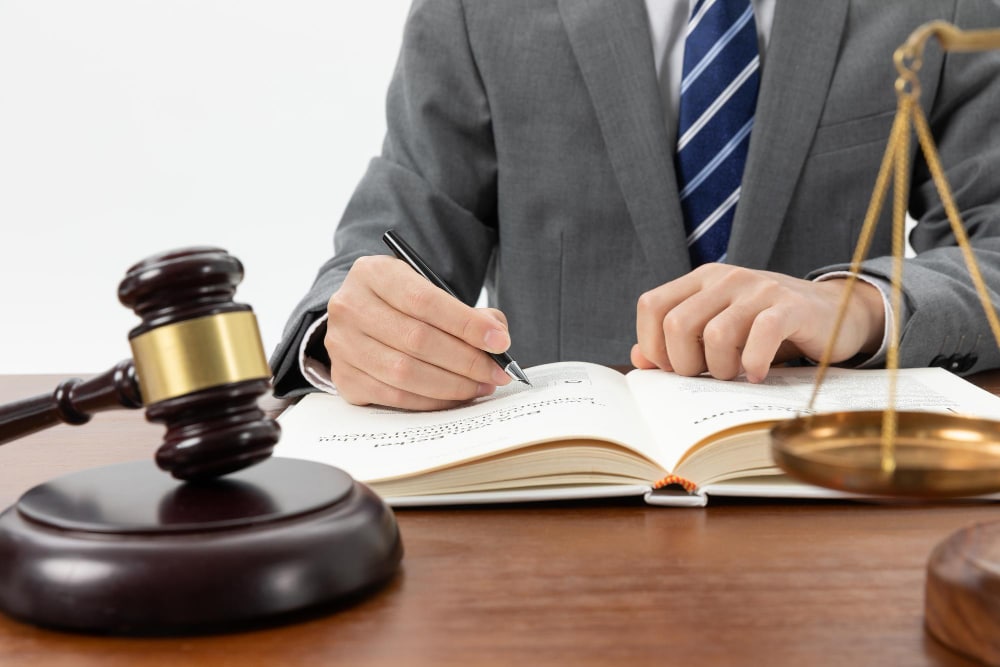In our daily lives, we often encounter situations where we need to sign important documents, witness agreements, or authenticate certain transactions. In these instances, the role of a notary public becomes crucial. But what exactly does a notary do, and why is their role so important? This blog post delves into the responsibilities of notaries, their importance in various legal and financial matters, and how they can impact your life.
What is a Notary Public?
A notary public is a state-authorized individual who has a license to carry out certain legal responsibilities, typically including verifying signatures on legal documents.
They act as neutral observers during the signing of significant papers, deterring fraud and confirming the identities of the parties involved. Essentially, notaries are reliable public figures who play a key role in maintaining the trustworthiness of legal and financial dealings.
The Historical Context of Notaries
The origins of notaries can be traced back to ancient Rome, where they were tasked with documenting public events and legal contracts. Over the years, the notary’s role has developed and become crucial within the legal systems of numerous countries. Today, notaries have gained global recognition and their responsibilities have grown to encompass a variety of services that assist individuals and companies alike.
Core Responsibilities of Notaries
Notaries perform a range of important responsibilities to protect the interests of everyone involved in a transaction. These are some of the primary responsibilities that they have to handle:
- The primary responsibility of a notary is to observe individuals as they sign important documents. This guarantees that the individual executing the signature is truly the person they say they are, and that they are signing of their own free will. The notary ensures the signers’ identities by authenticating government-issued IDs.
- Notaries have the authority to perform oaths and affirmations, where individuals make solemn promises before signing a document. This is a typical need in affidavits and other legal papers where the accuracy of the information is important.
- At times, a notary may need to verify that a duplicate of an original document is true and comprehensive. This service is frequently needed for important documents such as passports, diplomas, and other vital records.
- Recognizing Actions: Notaries often play a role in real estate deals by officially recognizing deeds and other documents related to property. This procedure ensures that the individual who signed the agreement did it voluntarily and comprehended the content of the document.
- Notaries can carry out specific tasks related to international transactions, like creating and certifying documents to be used in countries outside of the United States. This may involve obtaining apostilles, which verify the validity of a document for international purposes.
The Importance of Notaries in Legal and Financial Transactions
Notaries are crucial in verifying the legality and genuineness of significant transactions. Their participation offers an added safeguard against deception by verifying the identity of the individuals involved and confirming that the documents are signed voluntarily and with full understanding.
- Notaries play a crucial role in fraud prevention by ensuring that signers personally appear with valid identification, which helps to deter identity theft and other fraudulent activities. This is especially crucial in transactions with high stakes, such as those dealing with significant amounts of money or property.
- Ensuring that legal requirements are met: To be considered valid, many legal documents need to be notarized. This encompasses documents such as wills, powers of attorney, and specific agreements. Notaries verify that these documents meet the required legal criteria, reducing the likelihood of disagreements and legal issues in the future.
- In the process of facilitating real estate deals, it is common for notaries to be present to oversee the signing of important documents such as deeds. Their participation ensures that the property transfer is done lawfully and that all parties are clear on the terms of the contract.
- In order to facilitate business operations, companies frequently depend on notaries to validate and certify contracts, agreements, and various other official documents. In industries like finance, healthcare, and construction, compliance with legal standards is especially crucial.
Types of Documents That May Require Notarization
Notarization is necessary for different types of documents, depending on the transaction and legal guidelines in the area where the document is being signed. A few of the most frequently encountered papers that might need notarization are:
- Real estate paperwork such as deeds, mortgages, and leases typically need to be notarized in order to hold legal validity.
- Legal papers such as wills, powers of attorney, and affidavits are often notarized in order to confirm their authenticity.
- In order for financial documents such as loan agreements, promissory notes, and other financial contracts to be legally binding, they may need to be notarized.
- Personal legal documents such as marriage licenses and adoption papers may require notarization in order to be officially recognized by government authorities.
- Corporate paperwork such as agreements, articles of organization, and other business-related documents frequently need to be notarized in order to comply with legal standards.
The Notarization Process: Step by Step
The notarization process consists of multiple essential steps, all aimed at verifying the genuineness and legality of the signed document.
- The notary starts by confirming the identity of the individual who is signing the paperwork. This is usually accomplished by checking a form of identification issued by the government, like a driver’s license or passport.
- Examining the paperwork: The notary will quickly examine the document to confirm its accuracy and to check for any evidence of deceit or pressure. Notaries are not obligated to confirm the correctness of the document’s content.
- When necessary, the notary will ask the signer to take an oath or make a solemn affirmation to confirm their understanding of the document and the implications of signing it.
- Observing the Signing: The notary will watch as the signer puts their signature on the paperwork. This step is highly crucial as it proves that the signature was given willingly and with a complete comprehension of what is written in the document.
- When the notary has seen the signature, they will then use their official seal or stamp to authenticate the document. This seal indicates that the document has been officially notarized and offers further confirmation of its validity.
- The notary will document the specifics of the notarial act in their designated journal. This document contains details regarding the document itself, the parties concerned, and the date and place where it was notarized.
Common Misconceptions About Notaries
Despite the significant role they play, there are many misunderstandings about the capabilities of notaries. Below are some commonly held beliefs that have been proven to be false:
- Notaries are not permitted to offer legal guidance or interpret legal paperwork. They are only responsible for observing signatures and confirming the identities of those involved.
- Not every legal document necessitates notarization. The need for notarization is determined by the nature of the document and the location where it is being signed.
- Notaries are not allowed to notarize documents that they have a personal interest in. They should stay neutral and steer clear of any potential conflicts of interest.
- Notaries ensure the authenticity of documents, but they do not confirm the accuracy or truthfulness of the information contained within. Their sole responsibility is to verify the identity of the individuals signing the document and to observe the act of signing.
How to Find and Choose a Notary
Locating a notary is typically easy, as they can be found in various public and private establishments. Below are a few typical locations where you may encounter notaries:
- Banks and financial institutions often provide notary services to their clients at no cost.
- Legal offices often have notaries available to help with the signing of legal documents.
- Shipping and Mailing Centers such as UPS and FedEx frequently offer notary services.
- Online Notary Services have become increasingly popular thanks to technological advancements, enabling individuals to conveniently complete the notarization process from their own homes.
When choosing a notary, consider the following factors:
- Convenience is key when searching for a notary—find one that is either conveniently located or has flexible hours to accommodate your schedule.
- Reputation is important when choosing a notary, so it’s wise to use someone who has been recommended by people you trust, such as friends, family, or reputable professionals.
- Costs for notary services may differ, so it is recommended to ask about fees in advance, particularly if you require several documents to be notarized.
- Specialized Services: When requiring a document to be notarized for overseas purposes, it is important to verify that the notary has expertise in dealing with such situations and can offer the appropriate apostilles or certifications.
The Future of Notary Services
With the ongoing advancements in technology, the realm of notary services is changing and adapting. An important advancement in the notarial field is the increasing popularity of remote online notarization (RON). Video conferencing now enables people to get their documents notarized without the necessity of face-to-face interactions. This service has seen a rise in popularity, particularly amidst the COVID-19 outbreak, and is projected to see further growth in the coming years.
Remote online notarization provides various advantages such as enhanced convenience, quicker processing times, and the capability to authenticate documents from any location globally. Nevertheless, security concerns and the possibility of fraudulent activities are also brought to light. Therefore, states are putting in place strict rules to guarantee that Remote Online Notarization (RON) is carried out in a secure manner and that the notarization process is kept reliable.
In modern society, notaries play a crucial role that cannot be understated.
Notaries play a vital role in verifying the legality, authenticity, and integrity of different transactions that occur in our everyday lives. Whether you are in the process of purchasing a house,



